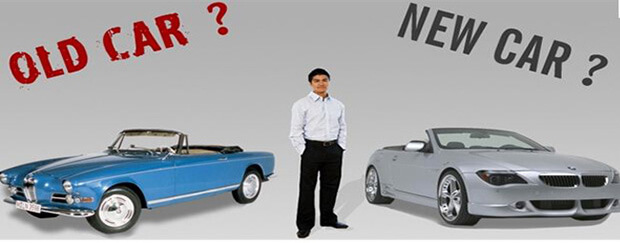Can buying a new car can save you money?

One report suggests that buying a new car can save you money?
Research from the UK has claimed that motorists could save as a much as a quarter on all running costs if they were to choose a brand new car over a used one.
Moneysupermarket, the UK’s largest price comparison website, conducted research a while ago and analysed the costs associated with five of the most popular cars on the road and have found that purchasing a brand new car is far better on the purse strings compared to a five-year-old version of the same vehicle model.
Although this sounds quite positive, there are other factors that could impinge on the overall costs. You have to factor in such things as purchase price, depreciation real-world fuel consumption.
Why the report says new cars are cheaper to run?
In the course of the study, five of the top favourite cars in the UK were reviewed. The BMW 3 Series, Ford Fiesta, Nissan Qashqai, Vauxhall Astra and Volkswagen Golf.
In each case, the brand new version of each model reviewed incurred significantly lower running costs. These included fuel, road tax, insurance, and MOT. When these factors were taken into consideration, the study revealed that the overall annual running cost of the new car was calculated to be £1,398 (€1,640) on average, compared to £1,645 (€1,930) for the models which were five years old. The report showed a difference of £247, (€290) or 15 per cent.
Of the five car models analysed for cost, the biggest difference was the Volkswagen Golf, where a saving of £363 (€426) (23 per cent) can be made on the running costs a new model compared to one its five-year-old version. This brings costs down from £1,592 (€1,868) to £1,229 (€1,442).
The Ford Fiesta had similar positive savings. The 1.25-litre petrol engine Fiesta had annual running costs are even less than the Golf, at £1,210 (€1,420)per year, which is £226 (€265) cheaper than the costs associated with a five-year-old version. The new Nissan Qashqai had annual costs of £1,472 (€1,727) compared to £1,731 (€2,030) for a five-year-old model, with a difference of £259 (€304).

A consumer affairs expert with MoneySuperMarket, Kevin Pratt, said:
“When making decisions about whether to purchase a new or used car, drivers may be deterred by the upfront cost of a fresh model, but it can be the best value option in the long run.
“Fuel efficiency, servicing costs and improved carbon emission credentials all play a part in reducing the cost of running and insuring a new car.
“A brand new model will have a higher price tag but showroom discounts, finance deals and cheaper running costs mean the difference can be reduced.
“Many new cars also come with a lengthy warranty, which will cut maintenance costs for several years in some cases.”

Other factors to consider
It has been pointed out, though, that the research misses out on two key running cost components which may make the buyer look more soberly at the results: The upfront price you pay for the car and the residual value of the vehicle and depreciation it suffers during ownership. As all motorist know, depreciation eats more value early on.
Also, buying a new car on finance, which most drivers do, this could incur additional interest. If you also receive a discount from a dealer on a five-year-old car, this can also be a good deal.
Added to this, if the car has low mileage from the previous owner, this may be far less than what you would have put up on the vehicle if you had it from new. All of these things can cancel out any savings you may have by buying a brand new car?
Another thing to keep in mind is fuel costs. If Volkswagen’s ‘dieselgate’ scandal is anything to go by, you should take the miles per gallon figures quoted by car manufacturers with a pinch of salt.
As the small print on manufacturers websites states, the MPG figures given are for comparative purposes only and do not necessarily represent real-world driving.
So the moral of the story is that ‘false economies’ can fluctuate and go both ways. It may look like buying a brand new car will save you money but this may not always be the case. In saying that, the comparative report does outline some of the savings you can make by buying a new car compared to an older model.
It’s important then to figure in all the different factors when considering buying a new, nearly new or older car. Taking into account your own needs and how you plan to finance and maintain the car is very important.

Author

Justin Kavanagh
Justin Kavanagh is a recognised leader
in automotive intelligence and vehicle
data supply to the entire motor industry.
He has almost 20 years experience in
building systems from the ground up.
As the Managing Director of Vehicle
Management System, he understands the
need and importance of trustworthy and
reliable vehicle history and advice to
both the trade and the public.
Follow me on LinkedIn